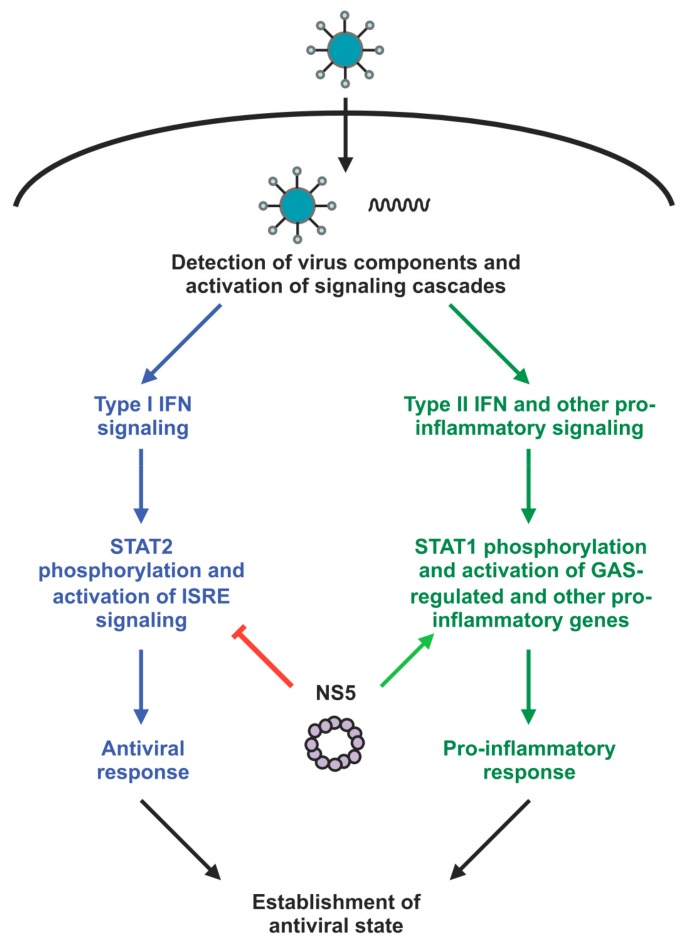Figure 2.
Modulation of host immune response by ZIKV NS5. Virus infection leads to the activation of host signaling cascades in response to the recognition of virus components such as RNA and protein. The type I IFN signaling pathway is one of the many pathways that mediate the host antiviral response. Type I IFN induces the phosphorylation of STAT2 and activation of interferon-stimulated response element (ISRE)-regulated genes, and this signaling cascade is targeted by ZIKV NS5 through the degradation of STAT2. Type II IFN and other pro-inflammatory molecules induces the pro-inflammatory responses through STAT1 phosphorylation and activation of interferon-gamma activated site (GAS)-regulated and other pro-inflammatory genes. ZIKV NS5 can activate the transcription of pro-inflammatory genes in a cell type-specific manner, but the mechanism is not known.

